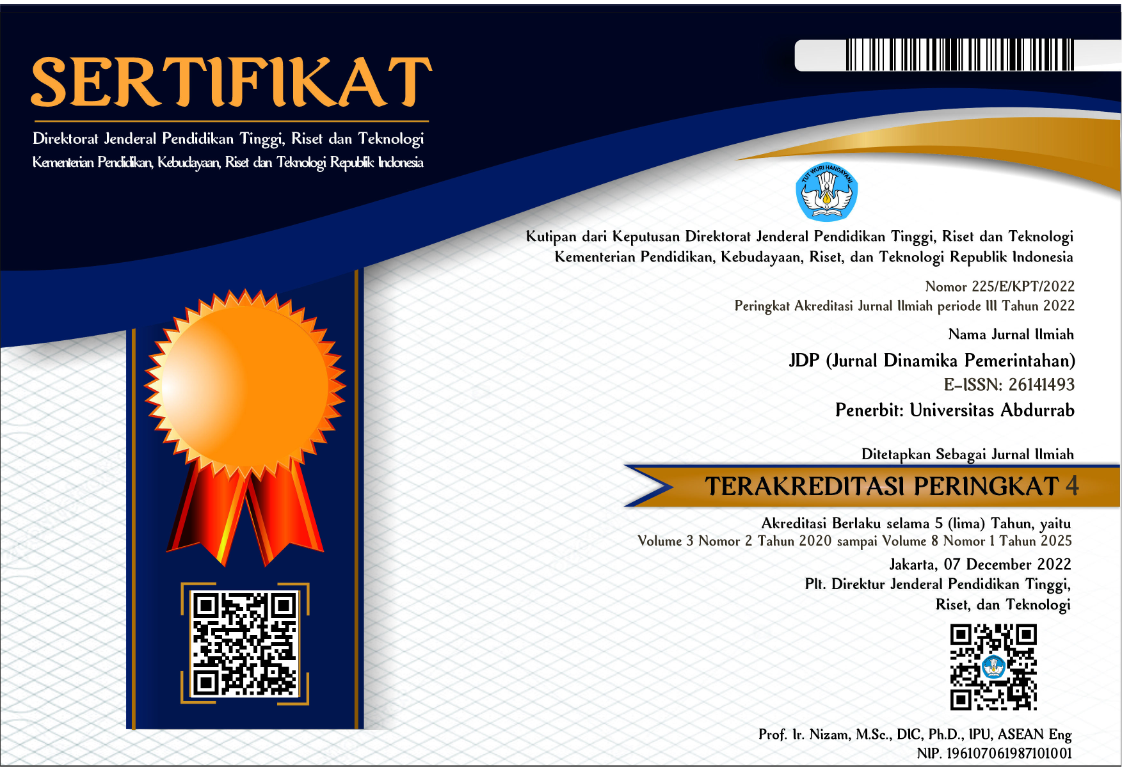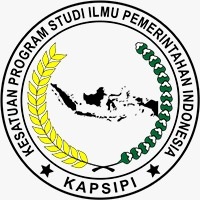Keterlibatan WALHI dalam Politik Lingkungan Hidup terhadap Kasus Kabut Asap di Riau
DOI:
https://doi.org/10.36341/jdp.v4i2.1659Keywords:
Walhi, Non-Governmental Organizations (NGOs), Riau’s Haze, Environmental Politics, Political Opportunities, Transnational AdvocacyAbstract
This research examines Walhi's involvement in environmental politics in the hazing case in Riau by using Walhi's perspective as a non-governmental organization (NGO) that has a lot of influence in the process of policymaking by the government on environmental issues, especially in Riau during haze disasters. There is an effort to use the power relations by Walhi as a non-governmental organization (NGO) through the concept of political opportunity in raising the issue of the haze disaster in Riau so that it becomes an environmental issue on an international scale. The transnational advocacy strategy was used by Walhi Riau to show the line of power relations as a non-governmental organization (NGO) to influence the policies of the Riau provincial government related to the haze disaster. Starting from the strategy (1) information politics, which is the ability to produce information and direct the impact that will occur from the information obtained. (2) symbolic politics, namely the ability to call symbols and actions that can bring public opinion and framing and construction of an issue, (3) leverage politics, is the ability to influence certain situations when one party is unable to exert influence, and (4 ) accountability politics, is an effort to keep the powerful actors to keep upholding the policies that have been set.
Downloads
Downloads
Published
Issue
Section
License
1. Copyright of all journal manuscripts is held by the JDP (Jurnal Dinamika Pemerintahan)
2. Formal legal provisions to access digital articles of electronic journal are subject to the provision of the Creative Commons Attribution-ShareAlike license (CC BY-NC-SA), which means that JDP (Jurnal Dinamika Pemerintahan) is rightful to keep, transfer media/format, manage in the form of databases, maintain, and publish articles.
3. Published manuscripts both printed and electronic are open access for educational, research, and library purposes. Additionally, the editorial board is not responsible for any violations of copyright law.
licensed under a Creative Commons Attribution-ShareAlike 4.0 International License.













